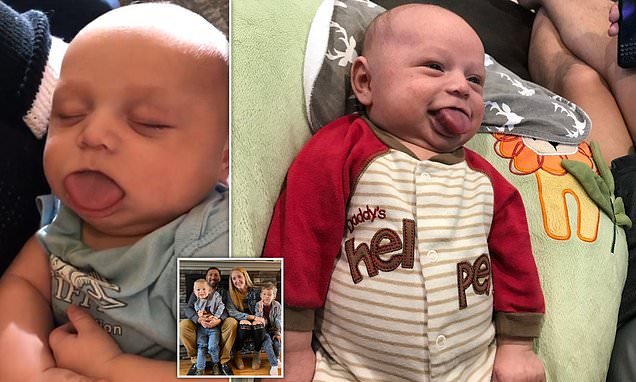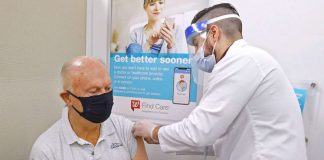A THREE-year-old boy who was born with a tongue four times too big for his mouth needs surgery to stop the organ expanding further.
Little Owen suffers from a rare disease called Beckwith-Wiedemann Syndrome (BWS), a condition that affects one in 15,000 babies.
One of the main symptoms of the condition is large tongue size (macroglossia).
The condition causes difficulties with feeding, speech, the development of the teeth and jaws, and increased drooling.
Some children might need to have tongue reduction surgery to stop the tongue blocking the airways.
Little Owen has already had surgery once for the condition and now needs surgery once more to help with potential jaw issues caused by the illness.
His mum Theresa Thomas from Pennsylvania, US, received the diagnosis for her toddler in 2018, just two weeks after he was born.
She now wants to raise awareness around the condition and help other families going through the same struggles.
At first doctors explained to Theresa that Owen’s tongue was “just a little swollen”.
But the 30-year-old said that further tests revealed that the organ was obstructing the child’s airway, as it was four times too big for his mouth.
He underwent a lengthy surgery to remove two inches, eradicating obstructive sleep apnea and leaving him with a tongue that didn’t take up his entire mouth cavity.
Unfortunately, it’s not a permanent fix, as Owen’s tongue continues to grow to this day and doctors are now trying to find a way to slow the growth, and operate on the young boy.
Theresa who is a stay-at-home mum said: “Owen was officially diagnosed at the Children’s Hospital of Philadelphia by their BWS genetics team.
“I knew in my heart that this is how Owen was made and that he had BWS but even though I knew it, it didn’t make the official diagnosis any easier.
“I remember feeling sick to my stomach and I almost vomited at the appointment.
“Before Owen, I had never heard of his syndrome. Even doctors I worked with at the time have never heard of it.”
The syndrome was discovered in the 1960s and doctors are still learning about the condition.













